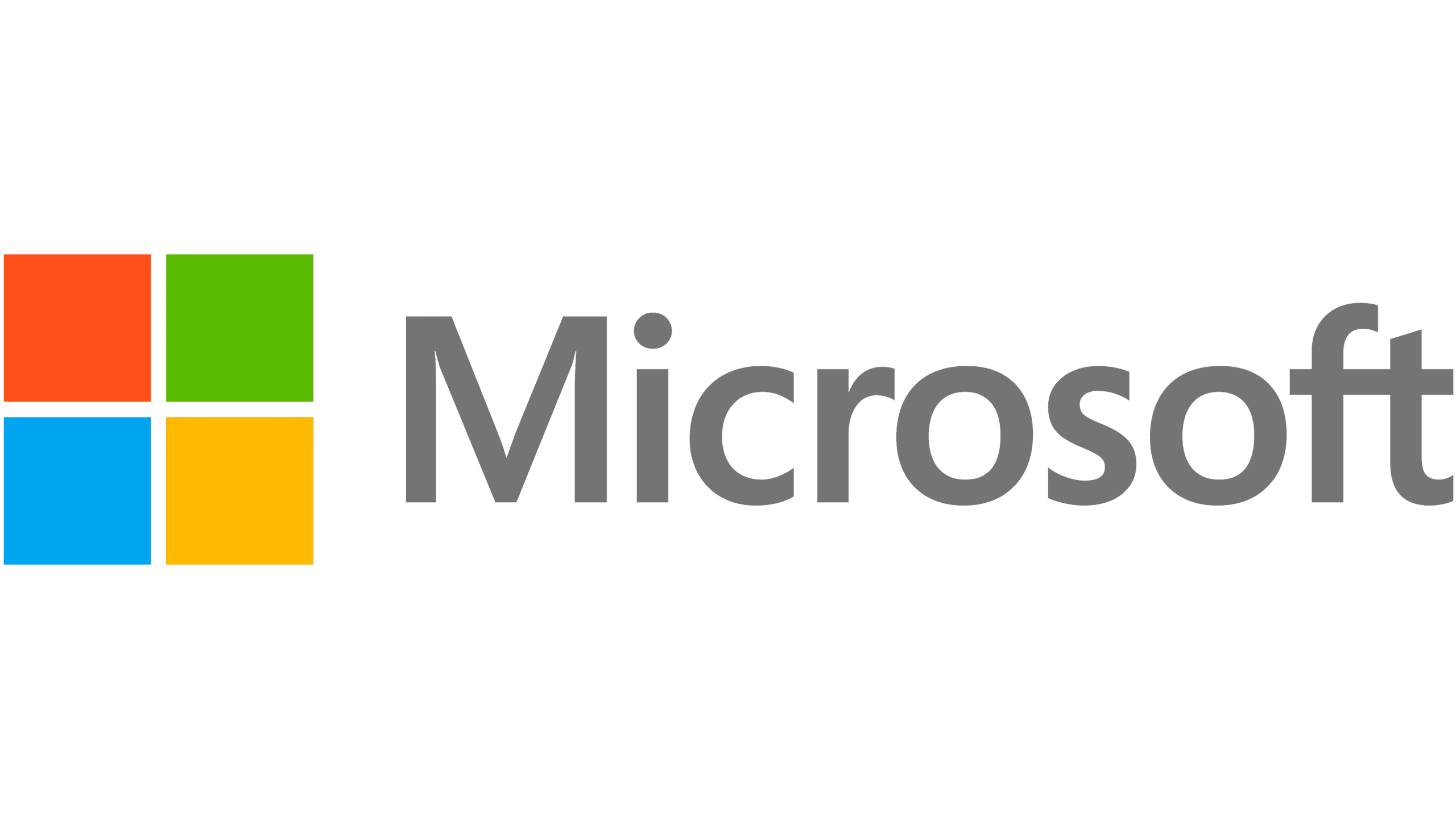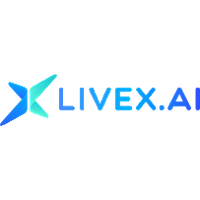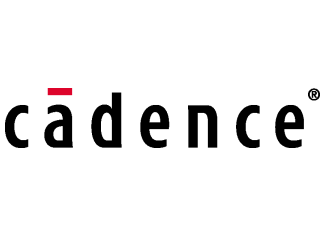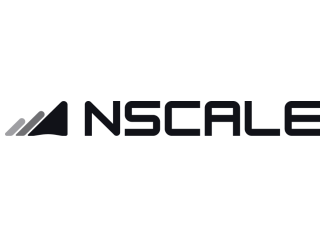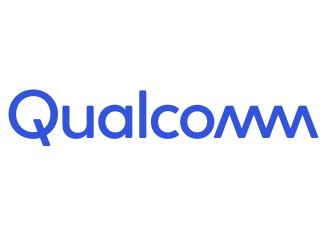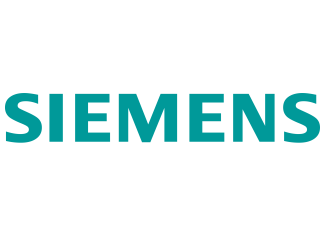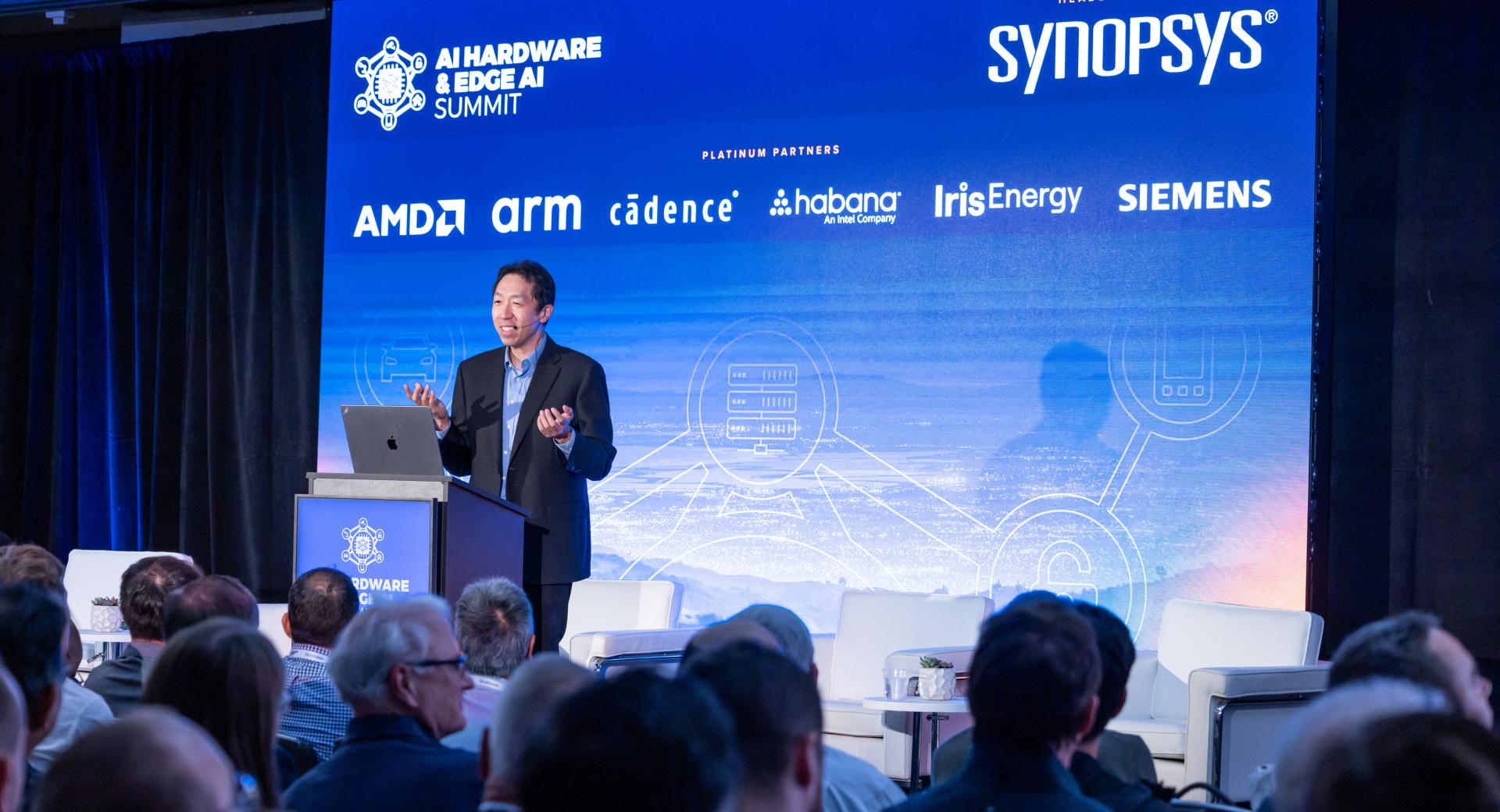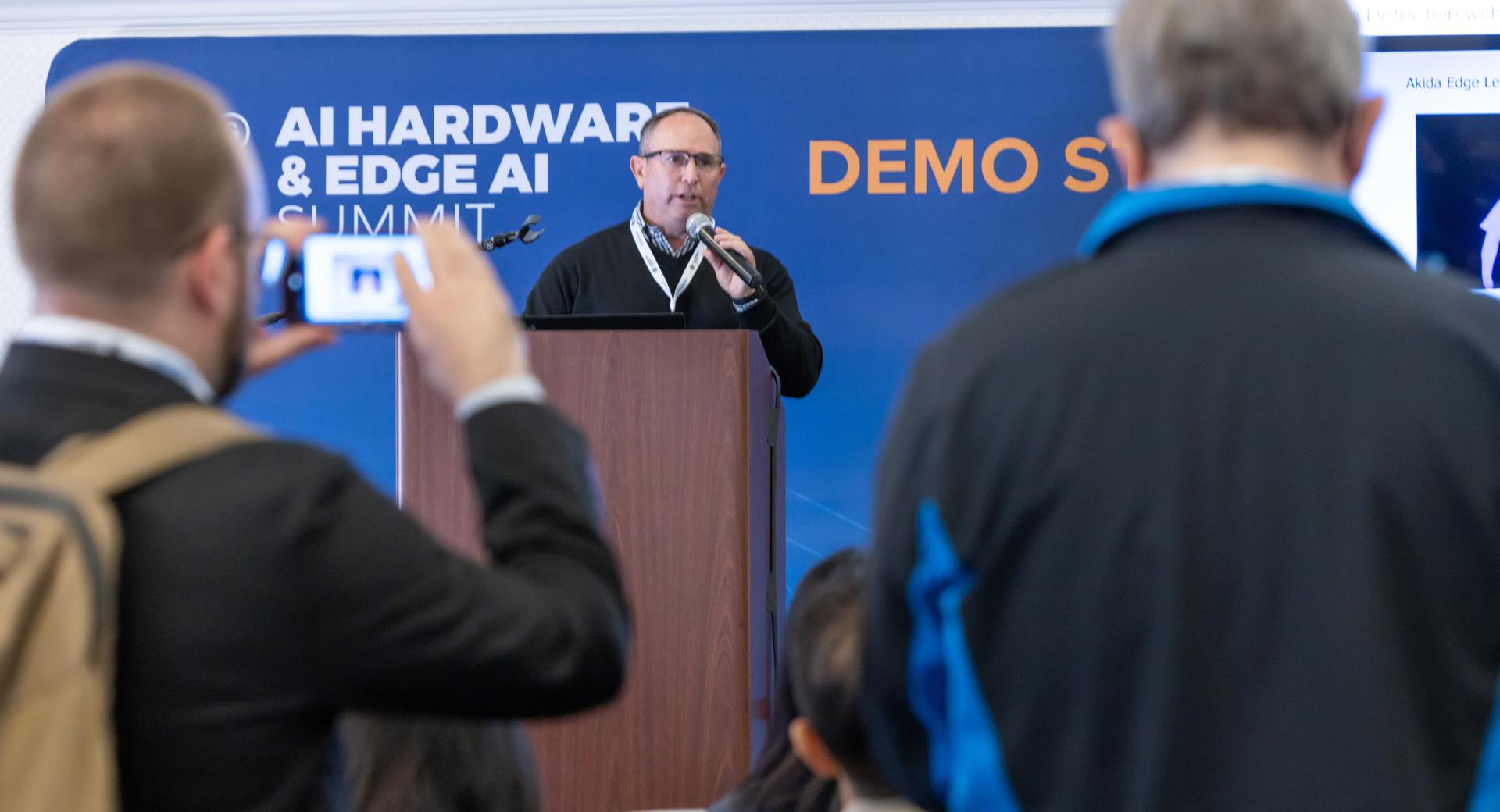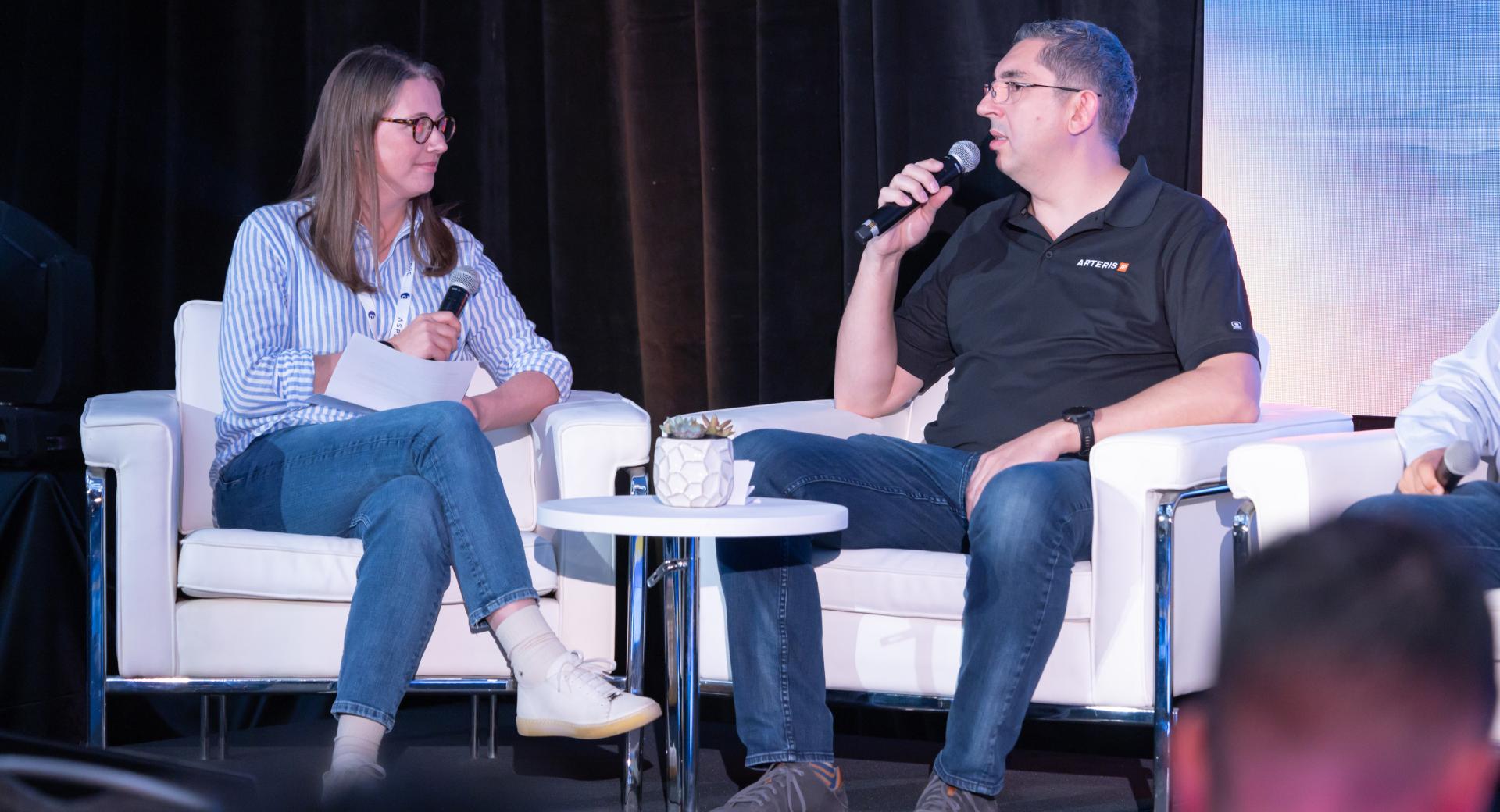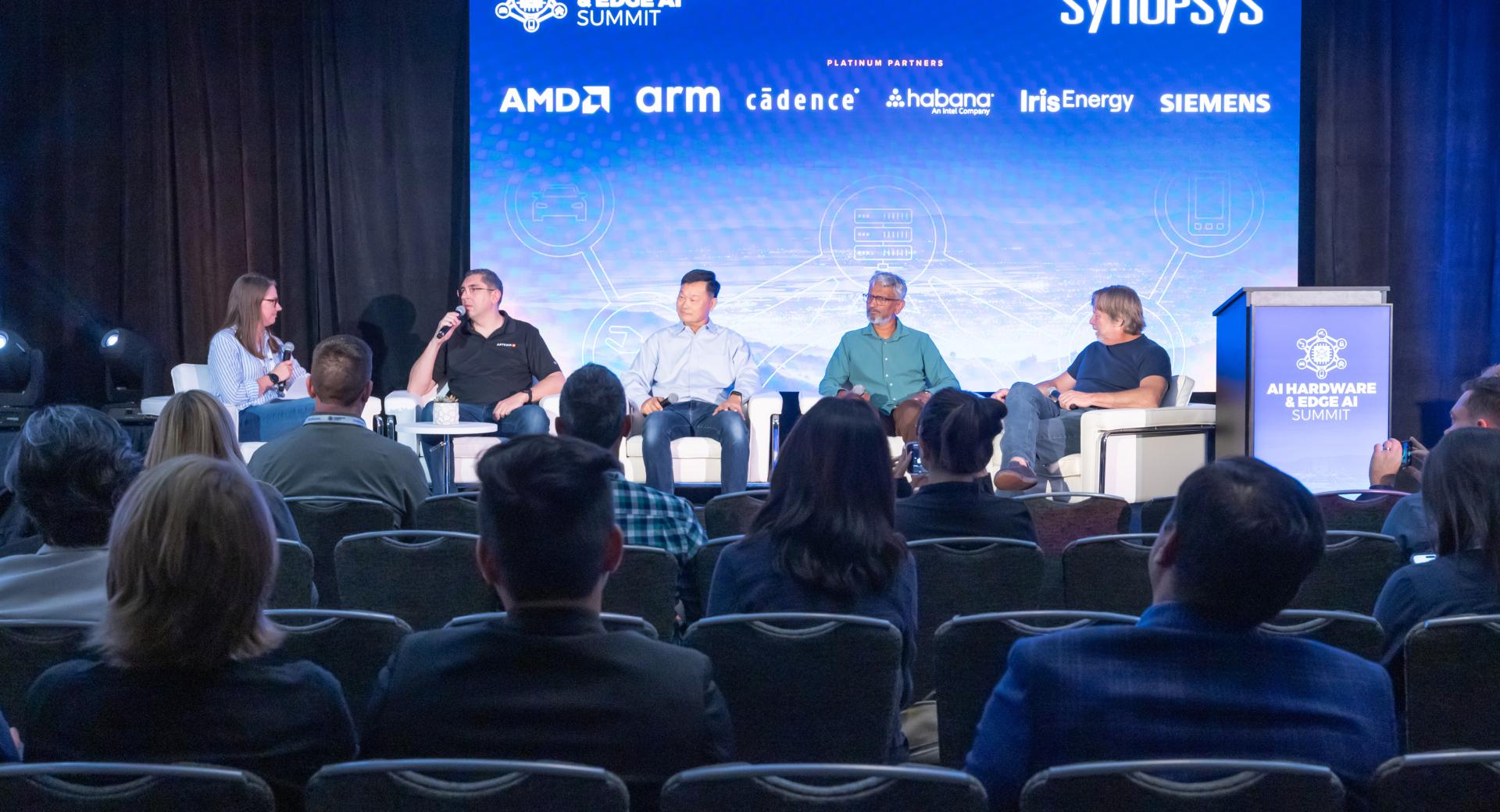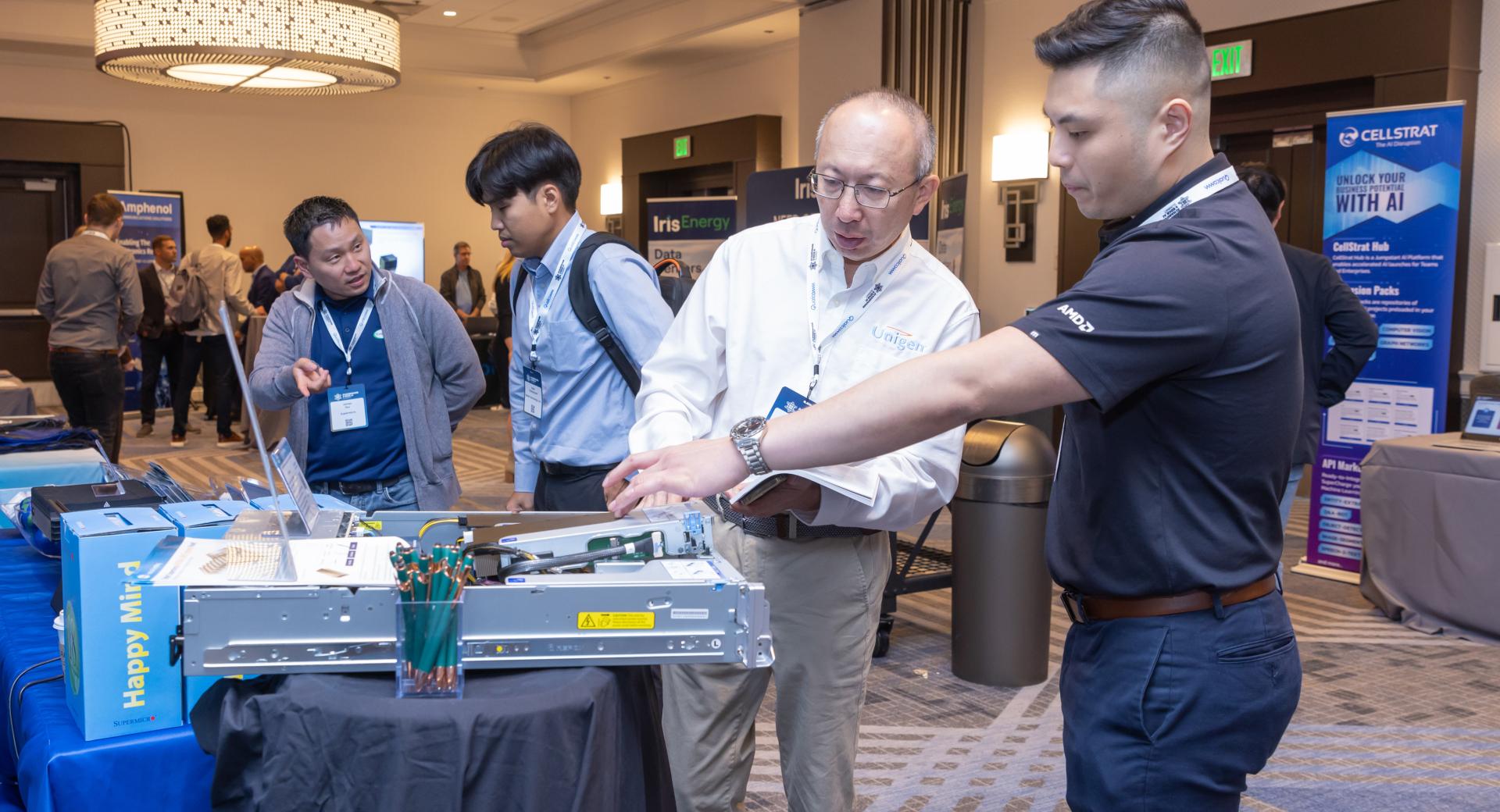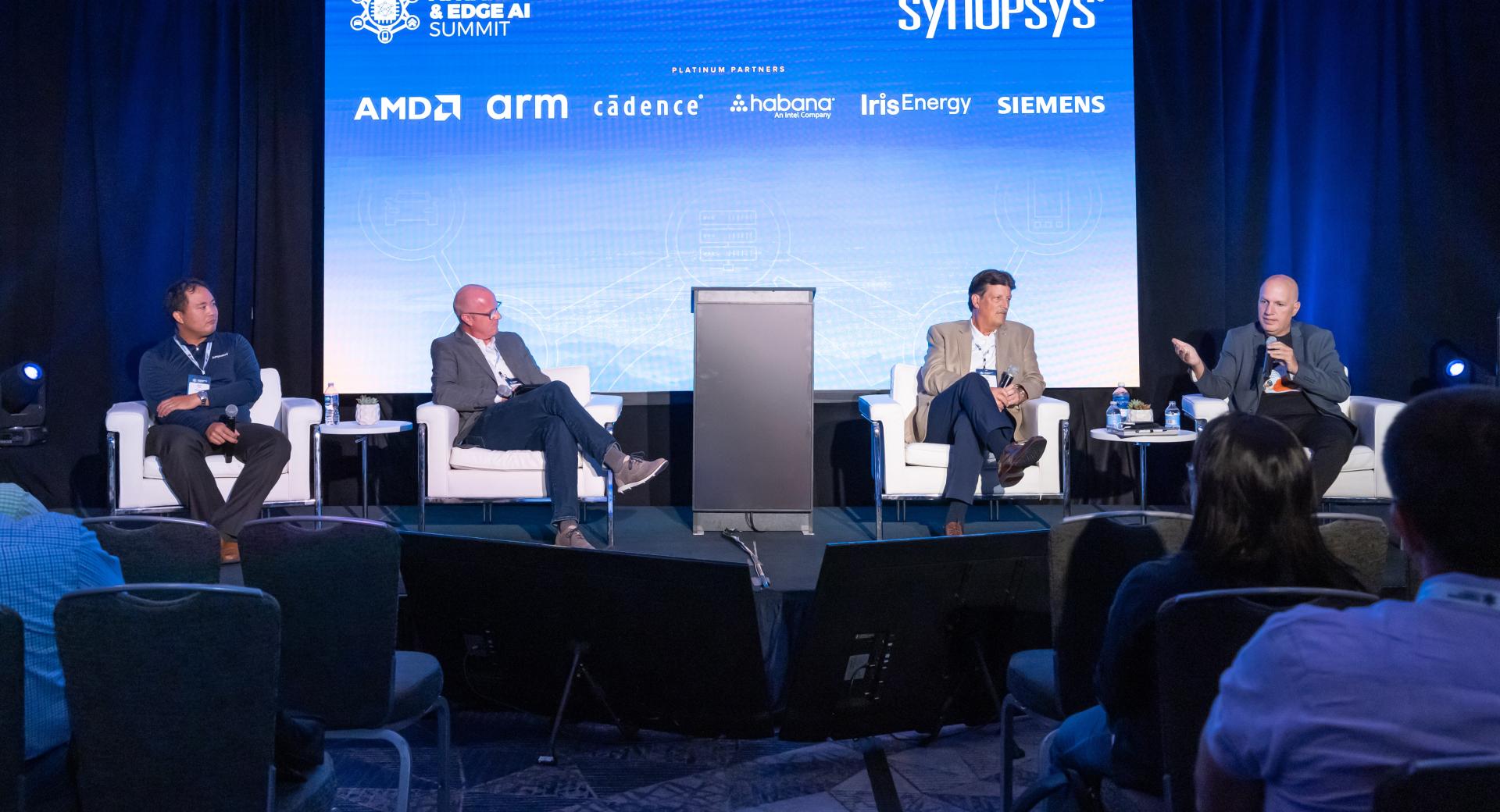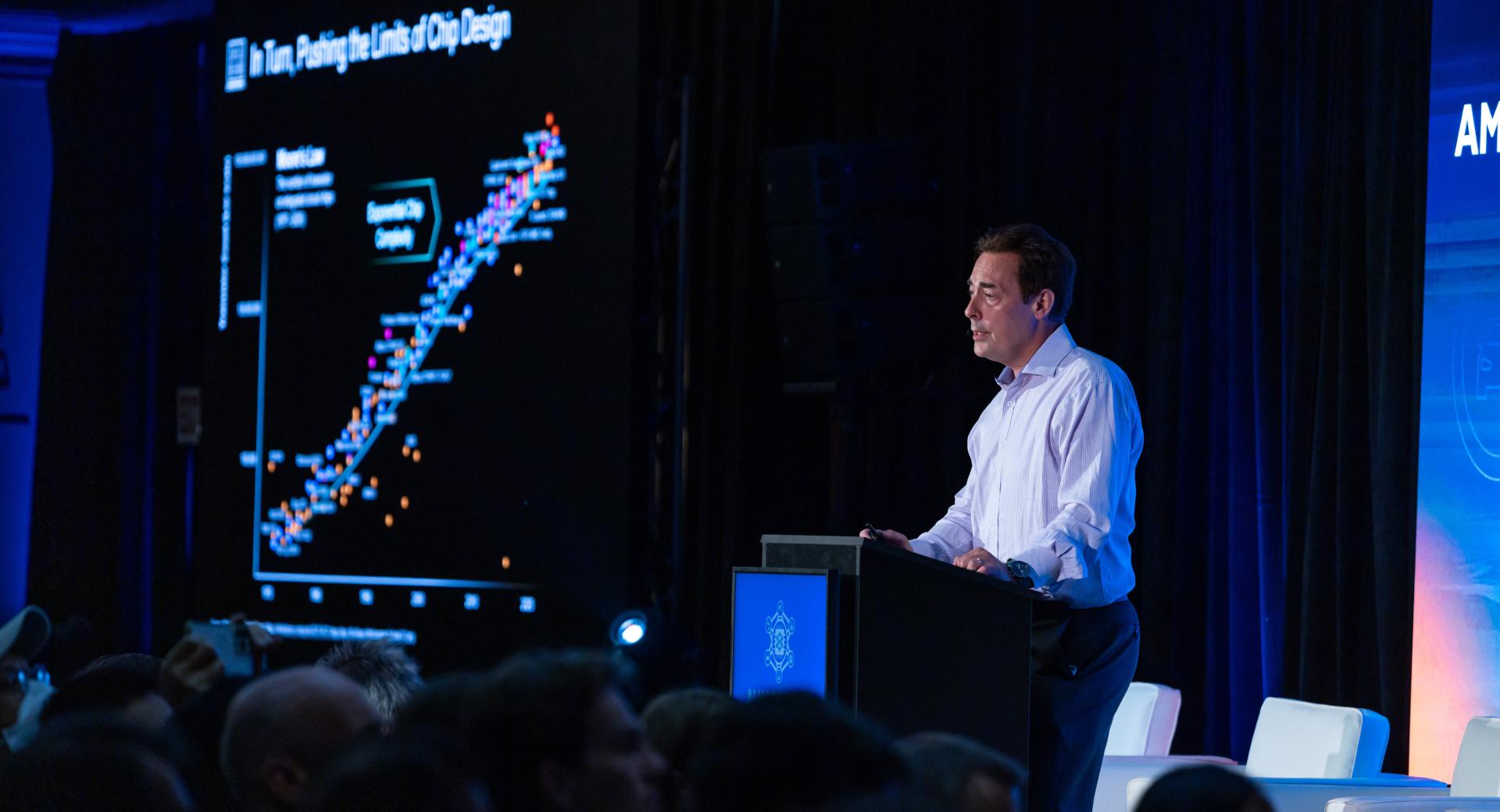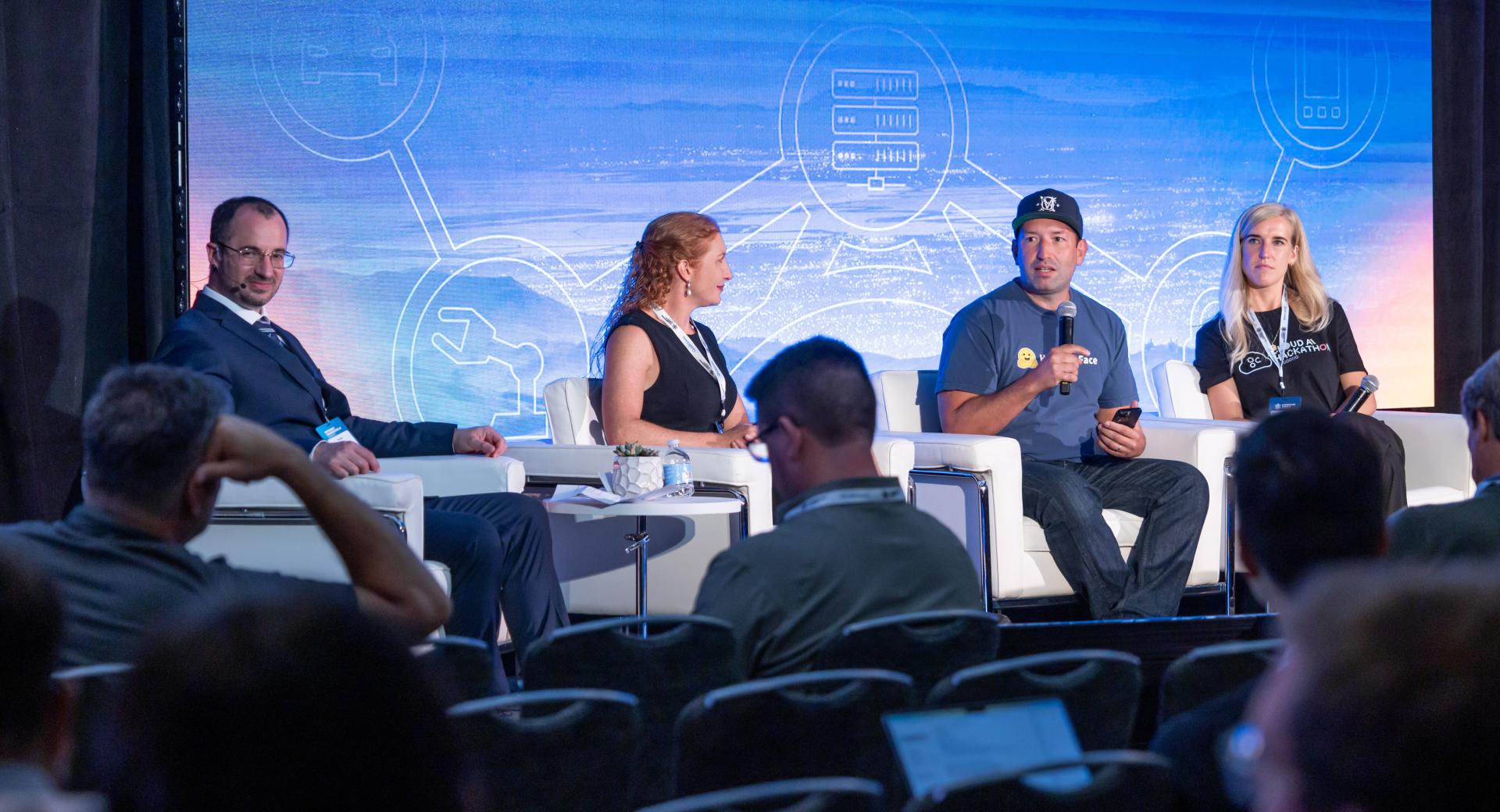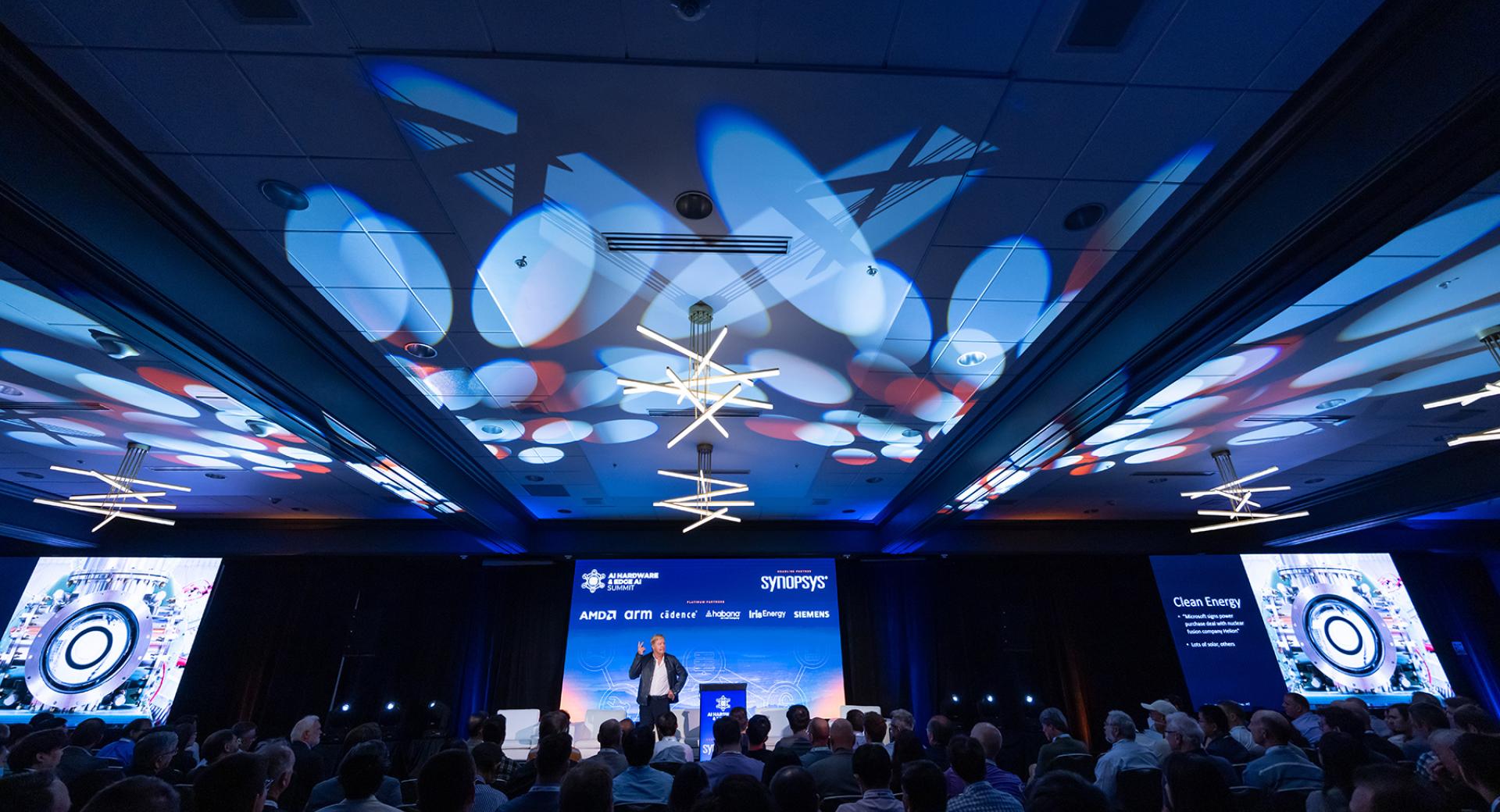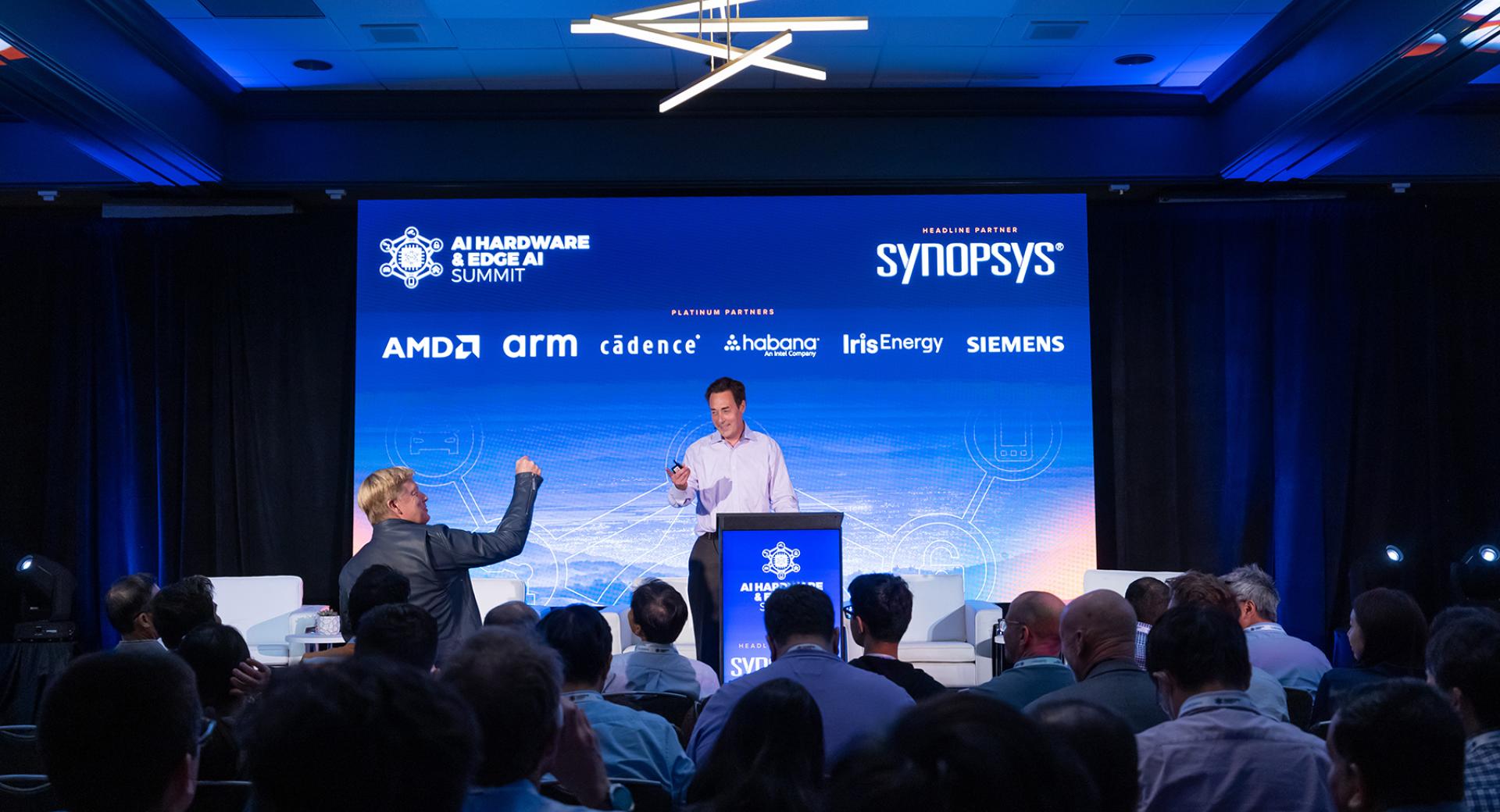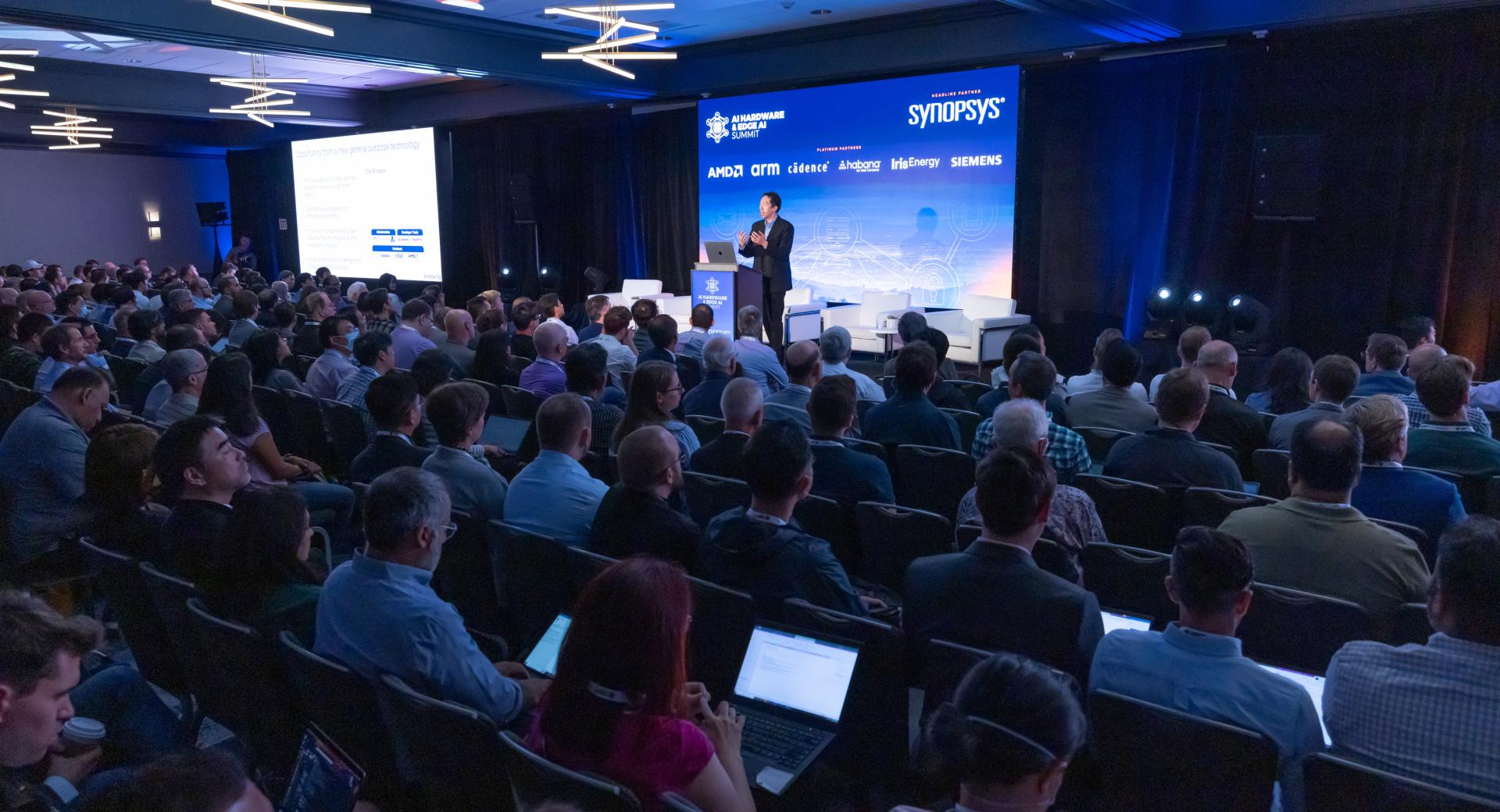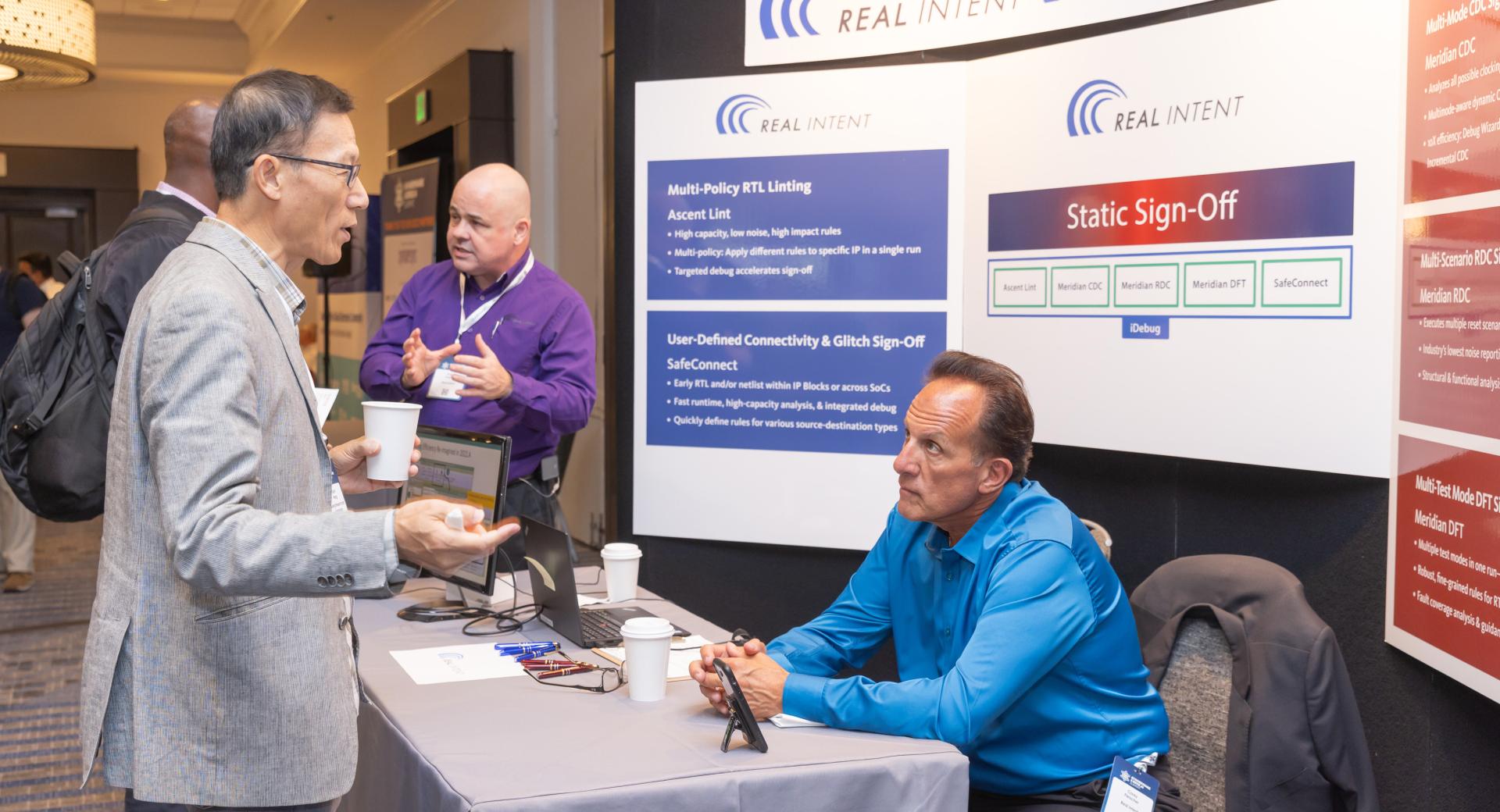“I was really delighted at the number of leaders, thought-leaders and big thinkers, that I was able to speak with and think through how hardware can continue to drive AI’s progress.”
Andrew Ng, Founder & CEO, Landing AI (speaking about the AI Hardware & Edge AI Summit 2023)
Meet Our Leading Speakers...
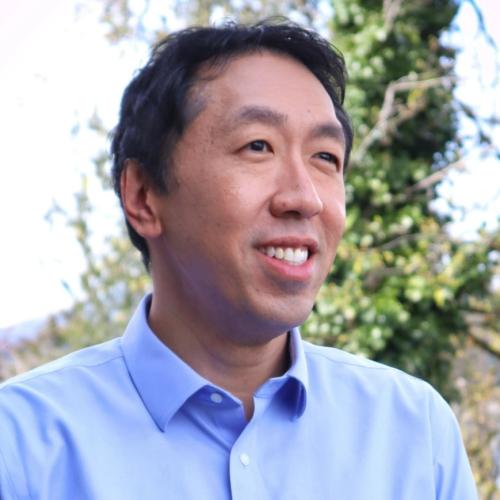
Andrew Ng
Dr. Andrew Ng is a globally recognized leader in AI (Artificial Intelligence). He is Founder of DeepLearning.AI, Founder & CEO of Landing AI, General Partner at AI Fund, Chairman & Co-Founder of Coursera and an Adjunct Professor at Stanford University’s Computer Science Department.
In 2011, he led the development of Stanford University's main MOOC (Massive Open Online Courses) platform and taught an online Machine Learning course that was offered to over 100,000 students leading to the founding of Coursera where he is currently Chairman and Co-founder.
Previously, he was Chief Scientist at Baidu, where he led the company’s ~1300 person AI Group and was responsible for driving the company’s global AI strategy and infrastructure. He was also the founding lead of the Google Brain team.
As a pioneer in machine learning and online education, Dr. Ng has changed countless lives through his work in AI, and has authored or co-authored over 200 research papers in machine learning, robotics and related fields. In 2013, he was named to the Time 100 list of the most influential persons in the world. He holds degrees from Carnegie Mellon University, MIT and the University of California, Berkeley.

Mark Russinovich
Mark Russinovich is Chief Technology Officer and Technical Fellow for Microsoft Azure, Microsoft’s global enterprise-grade cloud platform. A widely recognized expert in distributed systems, operating systems and cybersecurity, Mark earned a Ph.D. in computer engineering from Carnegie Mellon University. He later co-founded Winternals Software, joining Microsoft in 2006 when the company was acquired. Mark is a popular speaker at industry conferences such as Microsoft Ignite, Microsoft Build, and RSA Conference. He has authored several nonfiction and fiction books, including the Microsoft Press Windows Internals book series, Troubleshooting with the Sysinternals Tools, as well as fictional cyber security thrillers Zero Day, Trojan Horse and Rogue Code.
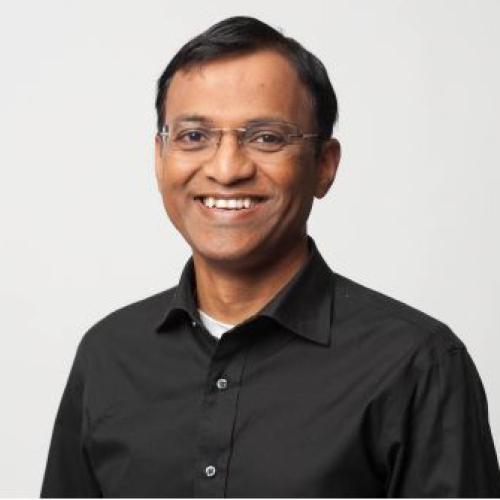
Partha Ranganathan
Parthasarathy (Partha) Ranganathan is currently a VP & Engineering Fellow, Google where he is the area technical lead for hardware and datacenters, designing systems at scale. Prior to this, he was a HP Fellow and Chief Technologist at Hewlett Packard Labs where he led their research on systems and data centers. Partha has worked on several interdisciplinary systems projects with broad impact on both academia and industry, including widely-used innovations in energy-aware user interfaces, heterogeneous multi-cores, power-efficient servers, accelerators, and disaggregated and data-centric data centers. He has published extensively (including being the co-author on the popular "Datacenter as a Computer" textbook), is a co-inventor on more than 100 patents, and has been recognized with numerous awards. He has been named a top-15 enterprise technology rock star by Business Insider, one of the top 35 young innovators in the world by MIT Tech Review, and is a recipient of the ACM SIGARCH Maurice Wilkes award, Rice University's Outstanding Young Engineering Alumni award, and the IIT Madras distinguished alumni award. He is one of few computer scientists to have his work recognized with an Emmy award. He is also a Fellow of the IEEE and ACM, and has also served on the board of directors for OpenCompute.

Dan Rabinovitsj
Dan has 30+ years’ experience in developing technology that connects people, with a particular focus on market disruption and innovation. Dan has served in executive leadership roles in Silicon Labs, NXP, Atheros, Qualcomm, Ruckus Networks and Facebook/Meta. Dan joined Meta in 2018 to lead Facebook Connectivity, a team focused on bringing more people online at faster speeds and changing the telecom industry through the Telecom Infra Project. Dan is now supporting a team developing and sustaining data center hardware and AI systems.
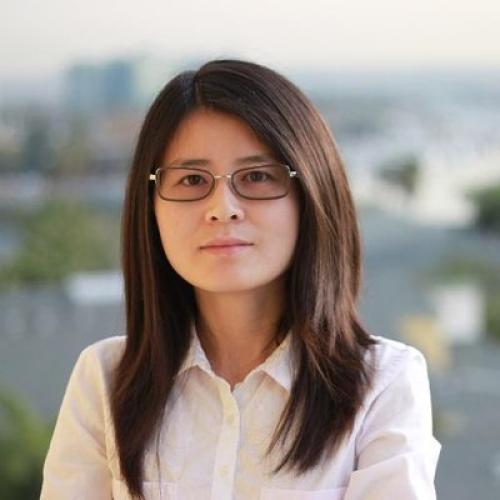
Jia Li
Jia is Co-founder, Chief AI Officer and President of a Stealth Generative AI Startup. She is elected as IEEE Fellow for Leadership in Large Scale AI. She is co-teaching the inaugural course of Generative AI and Medicine at Stanford University, where she has served multiple roles including Advisory Board Committee to Nourish, Chief AI Fellow, RWE for Sleep Health and Adjunct Professor at the School of Medicine in the past. She was the Founding Head of R&D at Google Cloud AI. At Google, she oversaw the development of the full stack of AI products on Google Cloud to power solutions for diverse industries. With the passion to make more impact to our everyday life, she later became an entrepreneur, building and advising companies with award-winning platforms to solve today's greatest challenges in life. She has served as Mentor and Professor-in-Residence at StartX, advising founders/companies from Stanford/Alumni. She is the Co-founder and Chairperson of HealthUnity Corporation, a 501(c)3 nonprofit organization. She served briefly at Accenture as a part-time Chief AI Follow for the Generative AI strategy. She also serves as an advisor to the United Nations Children's Fund (UNICEF). She is a board member of the Children's Discovery Museum of San Jose. She was selected as a World Economic Forum Young Global Leader, a recognition bestowed on 100 of the world’s most promising business leaders, artists, public servants, technologists, and social entrepreneurs in 2018. Before joining Google, She was the Head of Research at Snap, leading the AI/AR innovation effort. She received her Ph.D. degree from the Computer Science Department at Stanford University.
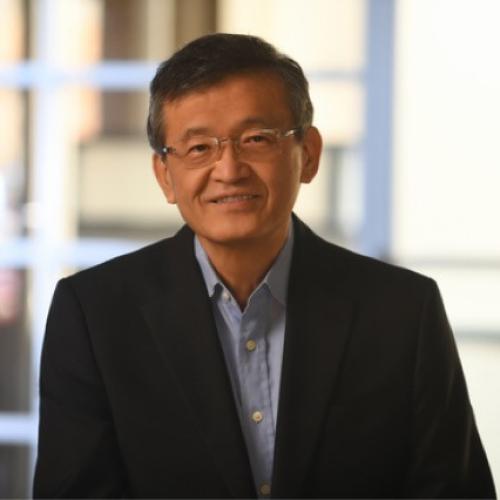
Lip-Bu Tan
Lip-Bu Tan is Founder and Chairman of Walden International (“WI”), and Founding Managing Partner of Celesta Capital and Walden Catalyst Ventures, with over $5 billion under management. He formerly served as Chief Executive Officer and Executive Chairman of Cadence Design Systems, Inc. He currently serves on the Board of Schneider Electric SE (SU: FP), Intel Corporation (NASDAQ: INTC), and Credo Semiconductor (NASDAQ: CRDO).
Lip-Bu focuses on semiconductor/components, cloud/edge infrastructure, data management and security, and AI/machine learning.
Lip-Bu received his B.S. from Nanyang University in Singapore, his M.S. in Nuclear Engineering from the Massachusetts Institute of Technology, and his MBA from the University of San Francisco. He also received his honorary degree for Doctor of Humane Letters from the University of San Francisco. Lip-Bu currently serves on Carnegie Mellon University (CMU)’s Board of Trustees and the School of Engineering Dean’s Council, Massachusetts Institute of Technology (MIT)’s School of Engineering Dean’s Advisory Council, University of California Berkeley (UCB)’s College of Engineering Advisory Board and their Computing, Data Science, and Society Advisory Board, and University of California San Francisco (UCSF)’s Executive Council. He’s also a member of the Global Advisory Board of METI Japan, The Business Council, and Committee 100. He also served on the board of the Board of Global Semiconductor Alliance (GSA) from 2009 to 2021, and as a Trustee of Nanyang Technological University (NTU) in Singapore from 2006 to 2011. Lip-Bu has been named one of the Top 10 Venture Capitalists in China by Zero2ipo and was listed as one of the Top 50 Venture Capitalists on the Forbes Midas List. He’s the recipient of imec’s 2023 Lifetime of Innovation Award, the Semiconductor Industry Association (SIA) 2022 Robert N. Noyce Award, and GSA’s 2016 Dr. Morris Chang's Exemplary Leadership Award. In 2017, he was ranked #1 of the most well-connected executives in the technology industry by the analytics firm Relationship Science.
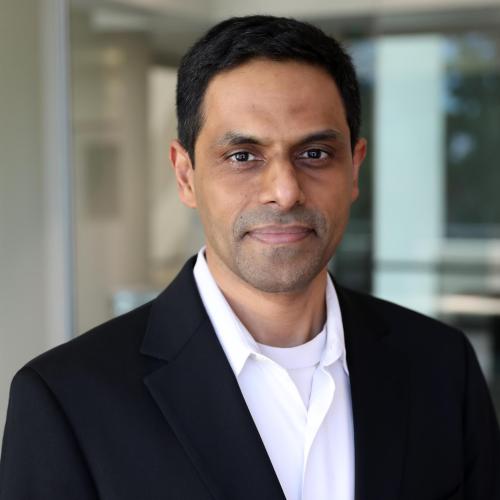
Vamsi Boppana
Vamsi Boppana is responsible for AMD’s AI strategy, driving the AI roadmap across the client, edge and cloud for AMD’s AI software stack and ecosystem efforts. Until 2022, he was Senior Vice President of the Central Products Group (CPG), responsible for developing and marketing Xilinx’s Adaptive and AI product portfolio. He also served as executive sponsor for the Xilinx integration into AMD.
At Xilinx, Boppana led the silicon development of leading products such as Versal™ and Zynq™ UltraScale™+ MPSoC. Before joining the company in 2008, he held engineering management roles at Open-Silicon and Zenasis Technologies, a company he co-founded. Boppana began his career at Fujitsu Laboratories. Caring deeply about the benefits of the technology he creates, Boppana aspires both to achieve commercial success and improve lives through the products he builds.

Mo Elshenawy
With more than 25 years of engineering and leadership expertise, Mo is the President and CTO at Cruise, a self-driving car company. Over the last six years, he has played a pivotal role in driving Cruise's engineering advancements, while scaling the team from hundreds to thousands of engineers. Mo currently leads Cruise’s engineering, operations, and product teams – those who are responsible for all aspects of our autonomous vehicles development and deployment, including AI, robotics, simulation, product, program, data and machine learning platforms, infrastructure, security, safety, operations, and hardware.
Prior to Cruise, Mo led global technologies for Amazon ReCommerce Platform, Warehouse Deals, and Liquidations: a massive scale global business that enables Amazon to evaluate, price, sell, liquidate, and donate millions of used products daily. In addition, over the past decade, Mo was a technical co-founder and CTO for three tech startups, the latest of which is a cloud-based financial services development platform used by top financial institutions.
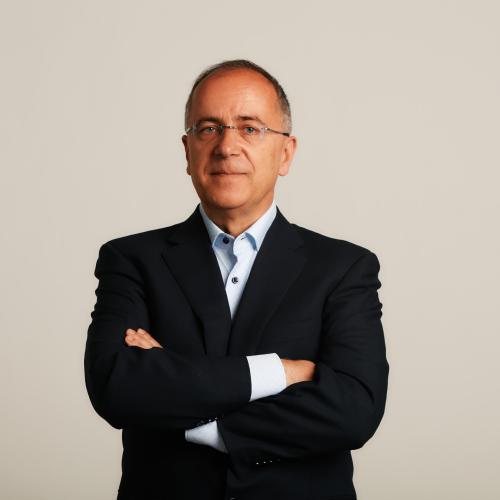
Arne Stoschek
Arne is the Vice President of AI, Autonomy & Digital Information and oversees the company’s development of autonomous flight and machine learning solutions to enable future, self-piloted aircraft. In his role, he also leads the advancement of large-scale data-driven processes to develop novel aircraft functions. He is passionate about robotics, autonomy and the impact these technologies will have on future mobility. After holding engineering leadership positions at global companies such as Volkswagen/Audi and Infineon, and at aspiring Silicon Valley startups, namely Lucid Motors/Atieva, Knightscope and Better Place, Arne dared to take his unique skill set to altitude above ground inside Airbus. Arne earned a Doctor of Philosophy in Electrical and Computer Engineering from the Technical University of Munich and held a computer vision and data analysis research position at Stanford University.
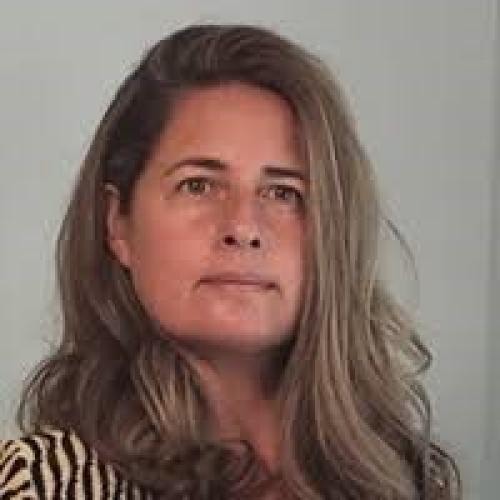
Gaia Bellone
Gaia is a dynamic and accomplished leader in the field of Data Science and Artificial Intelligence. In her current role at Prudential Financial, she leads Global Data and AI Governance and serves as Chief Data Officer (CDO) for Emerging Markets.
Her contributions to Prudential Financial have been significant and impactful. As the former Chief Data Scientist at Prudential, she led the Data Science team in creating innovative solutions for Digital, Marketing, Sales, and Distribution, the AI/ML Platform team, and the GenAI Enterprise Program. Her leadership and strategic vision have been instrumental in driving business growth and enhancing operational efficiency.
Prior to her tenure at Prudential, she held prominent positions at Key Bank and JPMorgan Chase. At Key Bank, she served as the Head of Data Science for the Community Bank. Her leadership and expertise in data science were crucial in optimizing the bank's operations and improving customer experience. At JPMorgan Chase, she led the data science teams for Home Lending and Auto Finance. Her strategic insights and data-driven solutions significantly improved the business performance in these sectors, contributing to the overall success of the enterprise.
Throughout her career, she has consistently demonstrated her ability to leverage data and AI to drive business growth and improve operational efficiency. Her contributions to the businesses and the enterprise have been substantial and transformative.
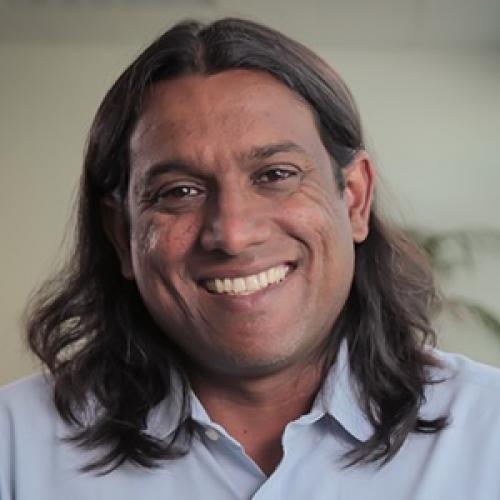
Zaid Kahn
Zaid is currently GM in Cloud Hardware Infrastructure Engineering where he leads a team focusing on advanced architecture and engineering efforts for AI. He is passionate about building balanced teams of artists and soldiers that solve incredibly difficult problems at scale.
Prior to Microsoft Zaid was head of infrastructure engineering at LinkedIn responsible for all aspects of engineering for Datacenters, Compute, Networking, Storage and Hardware. He also lead several software development teams spanning from BMC, network operating systems, server and network fleet automation to SDN efforts inside the datacenter and global backbone including edge. He introduced the concept of disaggregation inside LinkedIn and pioneered JDM with multiple vendors through key initiatives like OpenSwitch, Open19 essentially controlling destiny for hardware development at LinkedIn. During his 9 year tenure at LinkedIn his team scaled network and systems 150X, members from 50M to 675M, and hiring someone every 7 seconds on the LinkedIn Platform.
Prior to LinkedIn Zaid was Network Architect at WebEx responsible for building the MediaTone network and later I built a startup that built a pattern recognition security chip using NPU/FPGA. Zaid holds several patents in networking and SDN and is also a recognized industry leader. He previously served as a board member of the Open19 Foundation and San Francisco chapter of Internet Society. Currently he serves on DE-CIX and Pensando advisory boards.
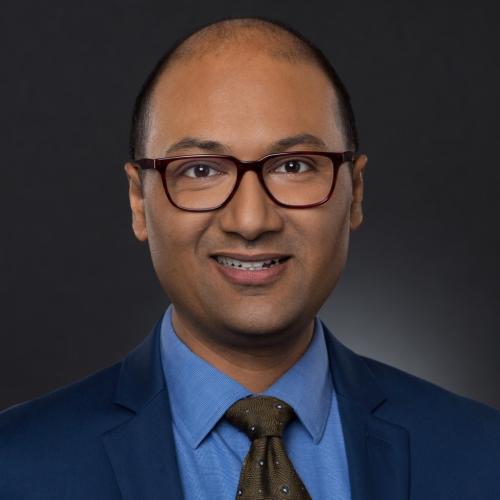
Ankur Gupta
Ankur Gupta is vice president and general manager of Tessent Silicon Lifecycle Solutions business unit for Siemens EDA. He and his global team are responsible for developing and marketing best-in-class DFT and Lifecycle solutions for the Semiconductor industry.
Ankur brings 20+ years of experience in Digital design, implementation and signoff. He oversaw the first five deployments of Innovus to the market, while at Cadence. Later, at Ansys, he oversaw the launch and deployment of RedHawk-SC, a market leader in power-grid signoff.
Can You Afford To Miss Out?
The AI Hardware & Edge AI Summit is the ultimate destination for the entire AI and ML ecosystem, with a collaborative mission to train, deploy and scale machine learning systems that are fast, affordable, and efficient.
Whether it’s forging new partnerships, staying ahead of the ever-changing semi-conductor landscape, learning how to build, train, and deploy efficient systems, meeting peers, learning from AI luminaries, or simply gaining exposure to the world of AI infrastructure, you’ll find over 1,200 likeminded people at our event.
Take it from the thousands of industry peers who have attended in the past, if you’re in the AI infrastructure and semiconductor worlds, this is one not to miss!

